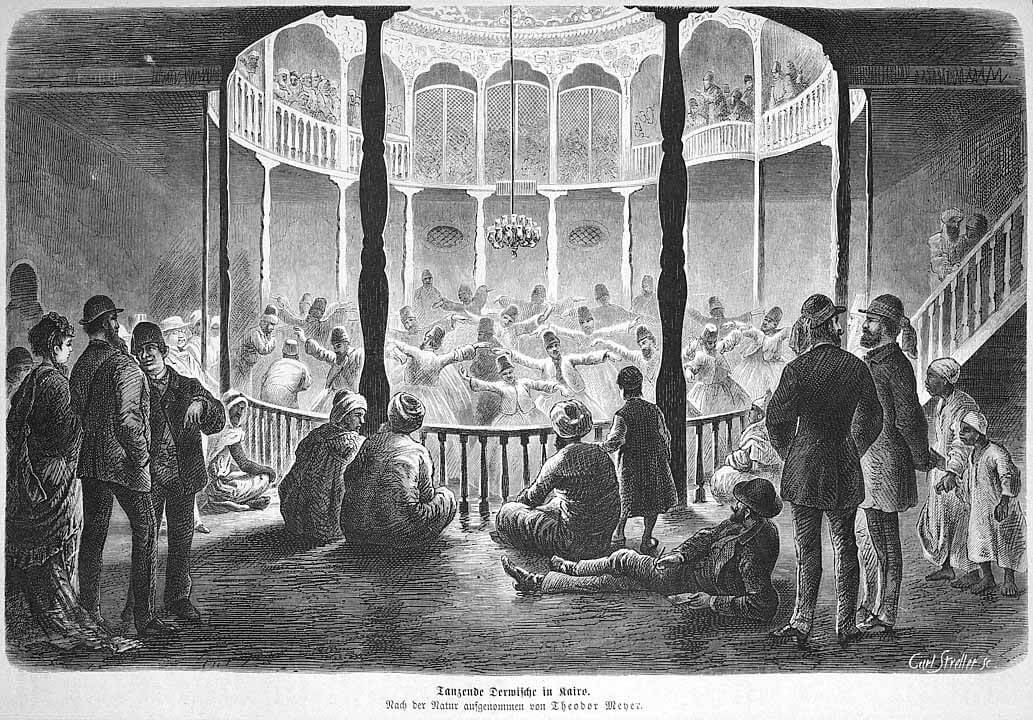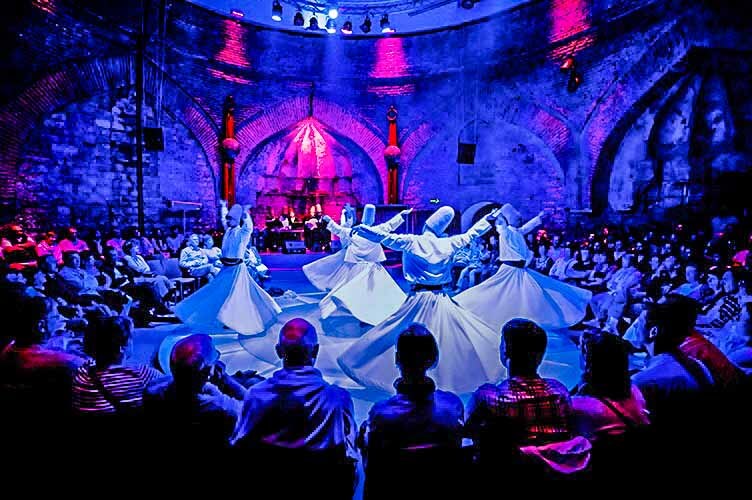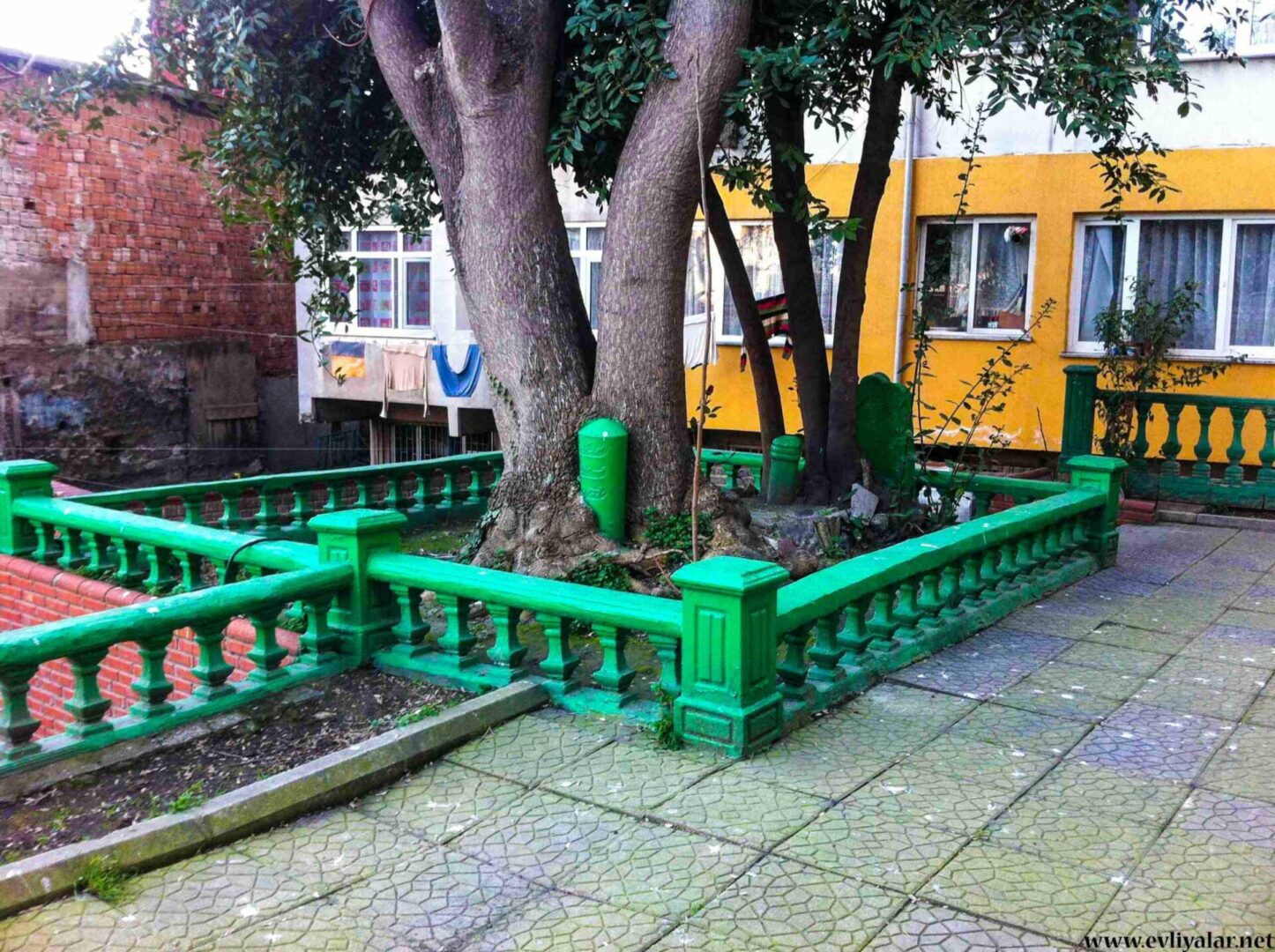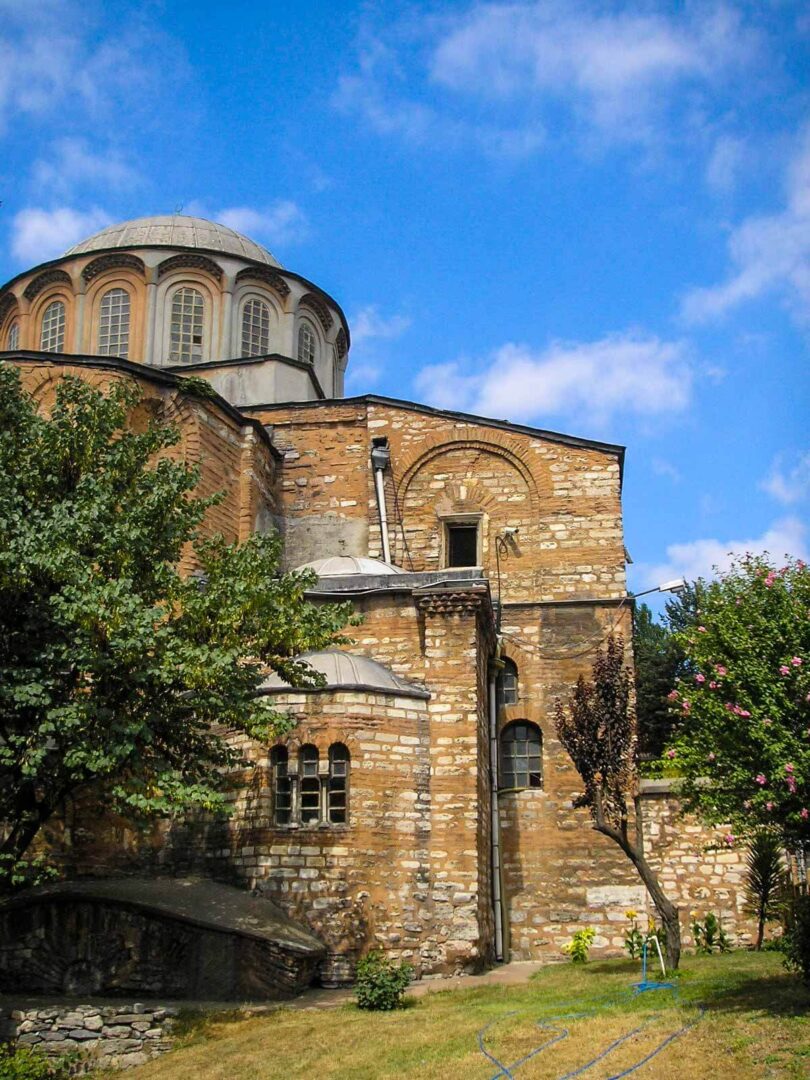Turkey
Sufi whirling (Turkish: Semazen borrowed from Persian Sama-zan, Sama, meaning listening, from Arabic, and zan, meaning doer, from Persian) is a form of physically active meditation which originated among certain Sufi groups, and which is still practiced by the Sufi Dervishes of the Mevlevi order and other orders such as the Rifa’i-Marufi.
It is a customary meditation practice performed within the Sema, or worship ceremony, through which dervishes aim to reach the source of all perfection.
This is sought through abandoning one’s nafs, ego or personal desires, by listening to the music, focusing on Allah, and spinning one’s body in repetitive circles, which has been seen as a symbolic imitation of planets in the Solar System orbiting the sun.
Among the Mevlevi order, the practice of dhikr is performed in a traditional dress: a tennure, a sleeveless white frock, the destegul, a long sleeved jacket, a belt, and a black overcoat or khirqa to be removed before the whirling begins.
As the ritual dance begins, the dervish dons a felt cap, a sikke, in addition to a turban wrapped around the head, a trademark of the Mevlevi order.
The sheikh leads the ritual with strict regulations.
The sheikh stands in the most honored corner of the dancing place, and the dervishes pass by him three times, each time exchanging greetings, until the circling movement starts.
The rotation itself is on the left foot, the center of the rotation being the ball of the left foot and the whole surface of the foot staying in contact with the floor.
The dance of the dervishes is one of the most impressive features of the mystical life in Islam, and the music accompanying it is of exquisite beauty, beginning with the great hymn in honor of the Prophet (na’t-i sharif, written by Jalaluddin himself) and ending with short, enthusiastic songs, some things sung in Turkish.
Dhikr
Dhikr, also spelled Zikr, Thikr, Zekr, literally means “remembrance, reminder” or “mention, utterance”.
They are Islamic devotional acts, in which phrases or prayers are repeated.
It can be counted on a set of prayer beads or through the fingers of the hand. It plays a central role in Sufi Islam. A person who recites the Dhikr is called a zakir.
Tasbih, literally meaning “glorification” (i.e. the saying of “subhan-allahi” is a form of dhikr that involves the repetitive utterances of short sentences glorifying Allah. The content of the prayers includes the names of Allah, or a dua (prayer of supplication) taken from the hadiths or the Quran.
Muslims believe dhikr is one of the best ways to enter the higher level of Heaven and to glorify the Monotheistic Oneness of Allah.
To Sufis, dhikr is seen as a way to gain spiritual enlightenment and achieve union (visal) or annihilation (fana) in Allah.
All Muslim sects endorse individual rosaries as a method of meditation, the goal of which is to obtain a feeling of peace, separation from worldly values (dunya), and, in general, strengthen Iman (faith).
Every Tariqa have their own way of spiritual practices and all of them are connected to a certain lineage like (Chishtiya, Qadriya, Naqshbandiya, Burhaniya etc) Followers of Sufism often engage in ritualized dhikr ceremonies, the details of which sometimes vary between Sufi orders or tariqah.
The most common forms of Sufi group dhikr consist in the recital of particular litanies (e.g. Hizb al-Bahr of the Shadhilis), a composition of Quranic phrases and Prophetic supplications (e.g. Wird al-Latif of the Ba `Alawis), or a liturgical repetition of various formula and prayers (e.g. al-Wadhifa of the Tijanis).
In addition, many recite extended prayers upon Prophet Muhammad ﷺ knows as durood of which the Dala’il al-Khayrat is perhaps the most popular. Though common to almost all Sufi orders, some (such as the Naqsbandis) prefer to perform their dhikr silently – even in group settings.

















